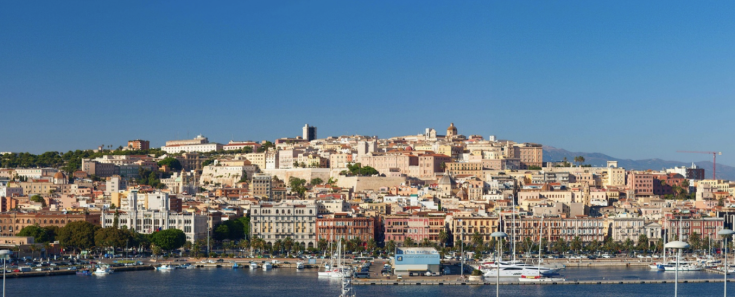First Regional Stakeholder meeting in Italy!

TTS Italia and the Metropolitan City of Cagliari organised their first regional stakeholder meeting, online, on 21st of July. Around 20 participants were involved, including several representatives of multiple Sardinia’s Municipalities, local public transport agencies and private companies.
The first session was aimed at presenting the EMBRACER project, highlighting firstly the Interreg Europe objectives, scopes, and funds, and then to address the specifics of the EMBRACER project. In particular, the project activities, the consortium, the challenges and the expect outcomes were shown.
The second session introduced the Metropolitan City of Cagliari state of the art. The focus was on the Cagliari SUMP as the main planning tool for the city. The main challenge for the Cagliari city is the huge percentage of private car use: more than 75% of the trips rely on private cars. The first challenge and expected outcome of the SUMP is to lower the use of private cars by 12% at least. To achieve this result, the Municipality of Cagliari planned four activities:
- The creation of eleven intermodal mobility hubs;
- The completion of the Local Public Transport (LPT) network (i.e., bus services);
- The completion of the underground network and its integration with local bus services
- The implementation of the Biciplan (or Bicycle Mobility Plan) encompassing a total of thirteen cycle routes throughout the city.
The session concludes addressing the three newest proposals of the Municipality: the Plan for Minimum Services, a tool that defines the optimal scenario to be identified in terms of efficiency and effectiveness; the Sustainable Development Agenda, a tool for coordination for every sectorial and territorial policy decision; the Project B, a side project aiming at enhancing the strengthen the connections between the coast and the interior.
The following sessions concerned the stakeholders’ presentations and best practices exchange.
Greenshare showed the SIMPLE project aimed at improving the accessibility in low demand/density areas.
T-Bridge showed four Interreg projects for a potential experience exchange with the EMBRACER project:
Rumobil; Youmobil; Regiamobil; Rail4Regions.
Finally, CTM highlighted the main activities related to changing routes to facilitate transport. Among those, there was the establishment of a DRT route, active since last 12th June; and the Amico-Bus service, which is part of a series of flexible promotions for social inclusion.
The last session of the meeting aimed at giving time and space for the Q&A. There was an overall excitement for the EMBRACER project and the possible concrete results at local level.
The online meeting concluded with the viewing of the EMBRACER project video and with a series of final considerations:
• There was common agreement on the effectiveness of DRT for low demand areas, which can manifest not only in rural areas, but also in urban areas.
• Leveraging their long standing expertise and their effective DRT solution, CTM mentioned the untapped potential of conventional transit lines, as opposed to feeder services, entirely driven by demand.
• Lastly, all participants agreed that collaboration and cooperation are of utmost importance – particularly at present in the current rich availability of funding from the EU, and that bottom-up approaches are needed to devise solutions creatively and collaboratively to address stakeholders’ needs (e.g., automated shuttle services connecting remote/underserved/low-demand areas and improve last-mile travel).
